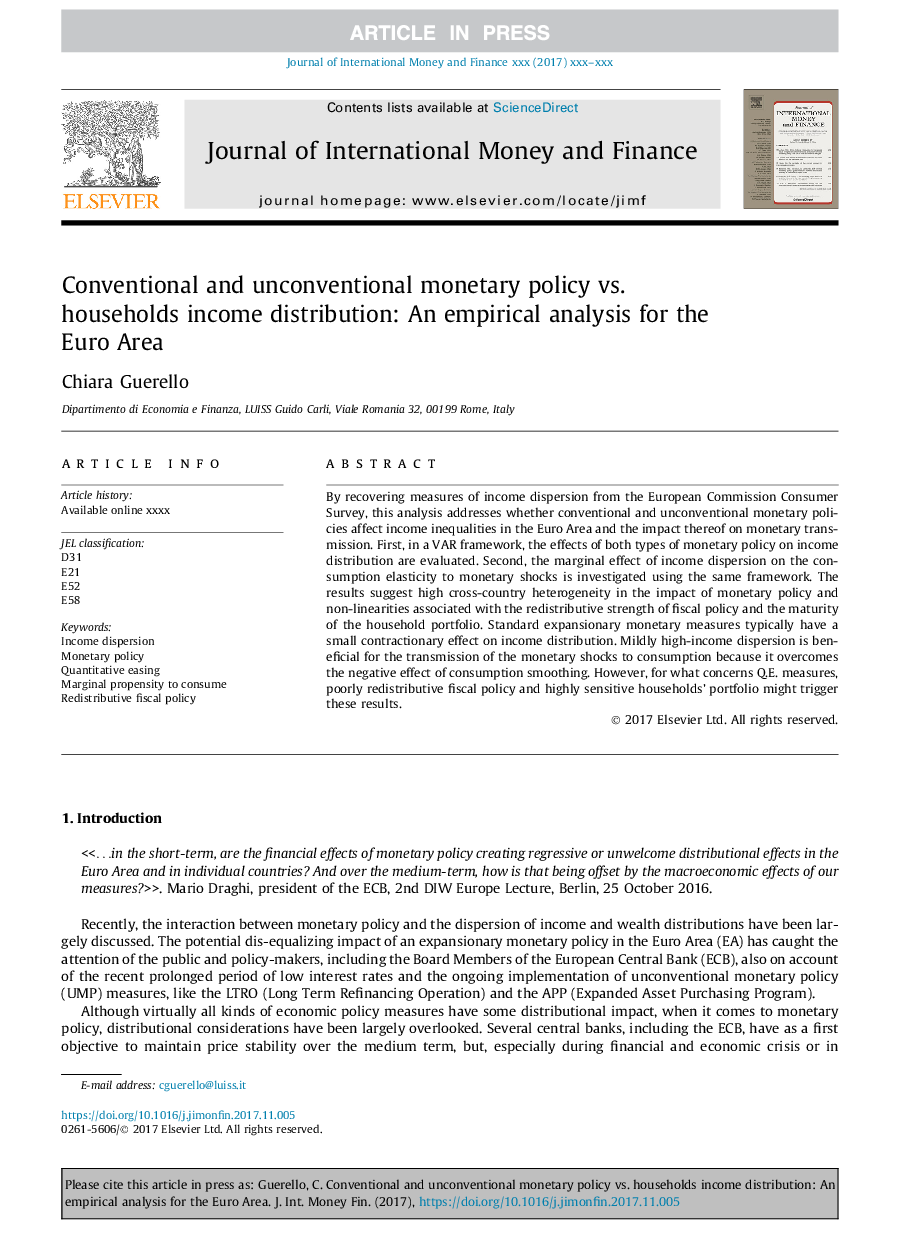| Article ID | Journal | Published Year | Pages | File Type |
|---|---|---|---|---|
| 7365198 | Journal of International Money and Finance | 2018 | 28 Pages |
Abstract
By recovering measures of income dispersion from the European Commission Consumer Survey, this analysis addresses whether conventional and unconventional monetary policies affect income inequalities in the Euro Area and the impact thereof on monetary transmission. First, in a VAR framework, the effects of both types of monetary policy on income distribution are evaluated. Second, the marginal effect of income dispersion on the consumption elasticity to monetary shocks is investigated using the same framework. The results suggest high cross-country heterogeneity in the impact of monetary policy and non-linearities associated with the redistributive strength of fiscal policy and the maturity of the household portfolio. Standard expansionary monetary measures typically have a small contractionary effect on income distribution. Mildly high-income dispersion is beneficial for the transmission of the monetary shocks to consumption because it overcomes the negative effect of consumption smoothing. However, for what concerns Q.E. measures, poorly redistributive fiscal policy and highly sensitive households' portfolio might trigger these results.
Related Topics
Social Sciences and Humanities
Economics, Econometrics and Finance
Economics and Econometrics
Authors
Chiara Guerello,
